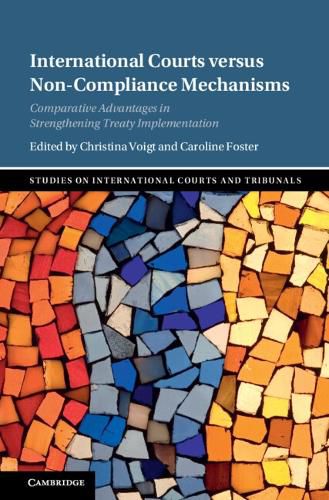Readings Newsletter
Become a Readings Member to make your shopping experience even easier.
Sign in or sign up for free!
You’re not far away from qualifying for FREE standard shipping within Australia
You’ve qualified for FREE standard shipping within Australia
The cart is loading…






This book explores the best mechanisms for helping bring about compliance with international treaties. In recent years, many international treaties have included non-compliance mechanisms (NCMs) to facilitate implementation and promote parties' compliance with their obligations. These NCMs exist alongside the formal dispute resolution processes of international courts and tribunals. The authors bring together a wide legal and geographical spectrum of views from different parts of the world representing novel insights into NCMs' contribution to treaty implementation and compliance. The research has cast important light on how procedural innovations may help render NCMs more effective, as well as on the circumstances in which they may be needed, including particularly where nations share common interests, populations are interdependent, and implementation makes significant administrative, regulatory and political demands. This title is also available as Open Access on Cambridge Core.
$9.00 standard shipping within Australia
FREE standard shipping within Australia for orders over $100.00
Express & International shipping calculated at checkout
This book explores the best mechanisms for helping bring about compliance with international treaties. In recent years, many international treaties have included non-compliance mechanisms (NCMs) to facilitate implementation and promote parties' compliance with their obligations. These NCMs exist alongside the formal dispute resolution processes of international courts and tribunals. The authors bring together a wide legal and geographical spectrum of views from different parts of the world representing novel insights into NCMs' contribution to treaty implementation and compliance. The research has cast important light on how procedural innovations may help render NCMs more effective, as well as on the circumstances in which they may be needed, including particularly where nations share common interests, populations are interdependent, and implementation makes significant administrative, regulatory and political demands. This title is also available as Open Access on Cambridge Core.